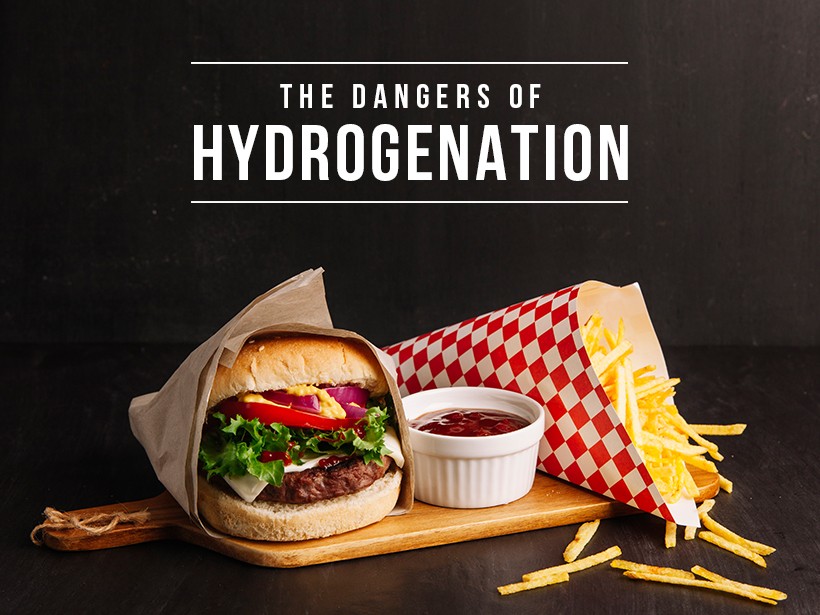Take a glance at some nutrition facts labels and the ingredient “partially hydrogenated oil” is sure to turn up. What exactly is it and how does it affect the human body? Read on to learn about how manufacturers create hydrogenated oils and why they’re in so many popular foods.
The Hydrogenation Process
Here’s the best way to describe the process of hydrogenation without sounding too much like a science book. It’s a chemical process where scientists add hydrogen atoms to liquid oil, causing a chain reaction. For this to happen, there needs to be a catalyst, like platinum or another reactive metal. Through the reaction, the unsaturated fats in the oil hold onto more hydrogen atoms and become partially saturated.
What’s So Bad About it?
The thing that’s worrisome is the hydrogenation procedure rather than the oils themselves. When the unsaturated fat grabs onto more hydrogen atoms, a new type of fat is created. This fat isn’t saturated or unsaturated, it’s in a transitioning state. Hence the name, trans fat. Most trans fats are difficult for the human body to process, and they can wreak havoc on people who eat them.
Hydrogenated oils can lead to increased LDL (bad) cholesterol and a higher risk for stroke and heart disease. They can also lower the HDL (good) cholesterol in the body. The Food and Drug Administration (FDA) stopped labeling trans fats as generally recognized as safe¹, and many food manufacturers and companies are scaling way back on their use of hydrogenated oils in food products.
Common Food Sources
It’s not too hard to find hydrogenated oils in some of the packaged foods in grocery stores. Hydrogenation prolongs a food’s shelf life and helps it keep its flavor. Many foods that contain trans fats are snack items like baked goods, microwavable popcorn, fried foods, margarine, and coffee creamer. These products include trans fatty acids that were made through full or partial hydrogenation, but there are naturally occurring trans fats.
In fact, meat and dairy typically have trans fat. Studies suggest that these natural trans fatty acids can have a positive effect on the immune system.² A good rule of thumb is to cut back on packaged foods and focus on a variety of natural, whole foods. A keto lifestyle may actually help individuals consume more healthy fats and avoid the harmful ones while eating a varied diet.
NUTRITIONAL DISCLAIMER
The content on this website should not be taken as medical advice and you should ALWAYS consult with your doctor before starting any diet or exercise program. We provide nutritional data for our recipes as a courtesy to our readers. We use Total Keto Diet app software to calculate the nutrition and we remove fiber and sugar alcohols, like erythritol, from the total carbohydrate count to get to the net carb count, as they do not affect your blood glucose levels. You should independently calculate nutritional information on your own and not rely on our data. The website or content herein is not intended to cure, prevent, diagnose or treat any disease. This website shall not be liable for adverse reactions or any other outcome resulting from the use of recipes or recommendations on the Website or actions you take as a result. Any action you take is strictly at your own risk.
- Healing Leaky Gut With Your Diet - February 27, 2019
- The Habit That Makes or Breaks Weight Loss - February 18, 2019
- Supplements and Keto - February 13, 2019




